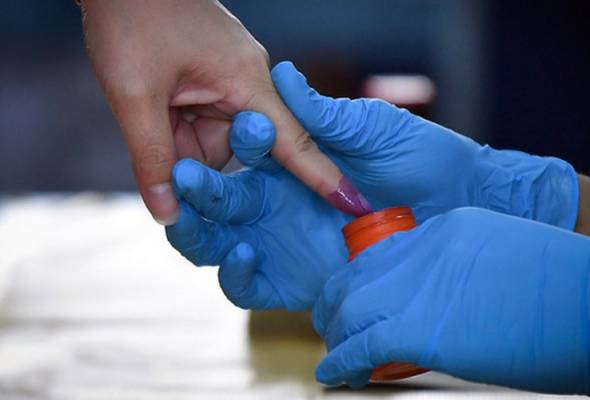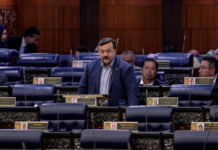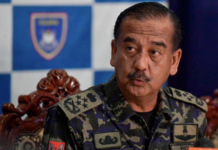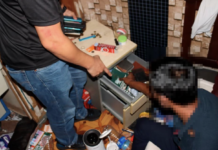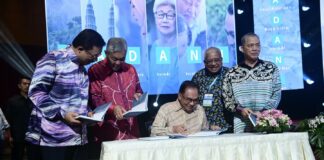KUALA LUMPUR, Nov 10 — Electors in the rural and interior areas can be considered “gold” by contesting parties in the 15th General Election as they are the deciding factor that will determine the outcome of the Nov 19 polls.
There are 144 parliamentary seats in the rural areas, including Felda settlements, or more than half of the total 222 parliamentary constituencies in the country, and according to some political analysts, none of the seats can be claimed as “white” by any of the political parties.
Following the change in the country’s political landscape, in addition to the rapid urbanisation process, the higher level of education and the broader internet coverage, they believe the contest will be more tense.
Describing the 15th General Election (PRU15) as the most difficult to predict, some political analysts see that Sabah and Sarawak, which have 25 and 31 parliamentary seats, respectively, as well as constituencies that have army camps, can no longer be regarded as “fixed deposits” to a political coalition.
A senior lecturer at the Faculty of Administrative Sciences and Policy Studies, Universiti Teknologi MARA, Raub Campus in Pahang, Dr Che Hamdan Che Mohd Razali, said that based on studies conducted during the past two general elections, there was declining support for Barisan Nasional (BN) in Felda settlements.
“In the Felda areas, for example, I see it dropped to 6.2 per cent in GE14, from 60.7 percent in GE13. BN can no longer expect an easy victory for seats in Felda schemes.
“The political parties share the same voter segment. So in terms of the voting pattern, it gives an advantage to the party that is able to get maximum support from the electors,” he told Bernama.
Among the parliamentary constituencies categorised as in the rural and interior areas are Jempol, Jelebu and Kuala Pilah in Negeri Sembilan, Pagoh, Sekijang, Labis, Segamat, Ledang, Kulai and Tebrau (Johor); Bentong, Raub and Temerloh (Pahang); Dungun, Setiu, Kuala Nerus (Terengganu); Jerlun, Padang Terap, Pokok Sena, Baling, Sik (Kedah).
In Sabah, it involves Kudat, Kota Marudu, Kota Belud, Tuaran and Papar, while in Sarawak it is Batang Lupar, Batang Sadong, Lubok Antu, Saratok, Kapit, Hulu Rajang, Sibu and Baram.
Che Hamdan said contesting parties, apart from hoping for votes from loyal supporters, the young electors, including the first-time voters, will be the determinant for their victory.
Sharing Che Hamdan’s views is a political analyst at Universiti Utara Malaysia, Prof Dr Mohd Azizuddin Mohd Sani who said the voting pattern of the rural communities has now changed due to rapid development and education.
Like the Felda settlements, he said, some of them have turned into town areas with the settlers themselves, especially the third generation, being more open now than the previous generations.
“The first generation of Felda settlers may vote based on the party they favoured, while the second generation, who have better education, will look at issues, but still grateful to the government.
“The third generation, who includes the 18-year-olds and is more open, may vote according to their play group and see offers that give them an advantage.
“Therefore, in this (GE15) election, no seat can be considered a fixed deposit of any party,” he added.
He said unlike in the urban areas, some seats are still seen as fixed deposits for Pakatan Harapan (PH) and for other parties to win them, they would have to increase efforts by multi-folds, while for Sabah and Sarawak, the political parties in both states can rally behind any coalitions in the peninsula.
President of Gabungan Wawasan Generasi Felda (GWGF), Tan Sri Rozali Ismail in a press conference on Nov 3 was reported to have said that the organisation, which has 135,000 members in 317 land schemes in the country, including Sabah, pledged to support BN in GE15.
The Election Commission (EC) has set Nov 19 as polling day for GE15, while early voting is on Nov 15.




